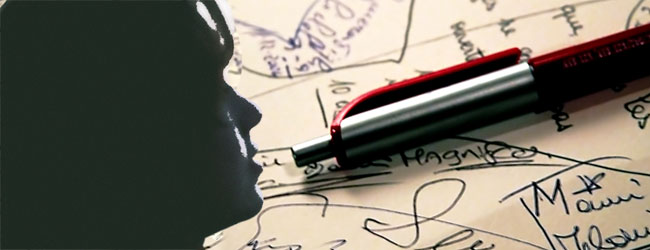9 September 2011
SWITZERLAND: MORE TO IT THAN ‘THE SOUND OF MUSIC’ AND YODELLING
Power to the People! Direct democracy in action
“POWER TO THE PEOPLE!” cried Wolfie Smith, the 1970s BBC sitcom bedsit revolutionary of the ‘Tooting Popular Front’, to a chuckling but otherwise indifferent audience. But isn’t that what democracy is meant to be about? If the people are to be sovereign, then how do we organise politics to allow that?
Direct democracy is the idea is that all citizens have a say in making political decisions. A referendum is direct democracy in action. Proponents of direct democracy argue that it means that political elites cannot form and leads to greater democratic accountability. Opponents of it argue that it panders to the lowest common denominator and in fact gives rise to mob rule, particularly in relation to minority groups in society.
Switzerland has a population of about seven and a half million people, slightly larger than Ireland. In area, it is a little more than half the size of Ireland and is land-locked between France, Italy, Germany and Austria. Most people view it as a fairly settled place (lots of banks, mountains and yodelling), but like any small country, surrounded by large powerful neighbours it has a fairly turbulent history. The last major conflict was a civil war in 1847. It is also ranked as one of the least corrupt countries in the world and is ranked highest in the world for freedom of the press, as rated by ‘Reporters without Borders’.
Switzerland is a confederation of 26 cantons. Government is organised on three levels: federal, cantonal and communal. At national level there are two houses of parliament. The cantons have a lot of local autonomy, and at community level, village meetings are commonplace.
The National Council has 200 members elected by proportional representation from the cantons. That works out at about one elected rep for each 23,000 voters, similar to Ireland. The second house, the Council of States, has 46 elected members, two from each of 20 cantons and one each from six ‘half-cantons’. (No one said it was simple!) The mode of election for the Council of State is a matter for the cantons. Some use PR and some of the smaller ones have direct meetings of the people. All laws must be passed by both houses.
The two houses of the Swiss system meet for weeks at a time several times during the year, and in between for committees. The elected representatives, however, are not full-time –– all have jobs outside of the parliament. The ‘government’ is a seven-person council elected from four main parties and is rarely, if ever, voted out of office.
One of the most significant features of the Swiss system is the use of direct democracy. Since 1848, all important laws have been passed by referendum. Amendments to the Constitution or joining international organisations must be passed by a majority of the people as a whole AND by a majority of the cantons, referred to as ‘double majority’.
Any citizen can challenge a law passed by parliament. To do so they have to gather 50,000 signatures within one hundred days. This will trigger a referendum on the law. If a citizen wants to amend the Constitution they need 100,000 signatures within 18 months. Again, a referendum will ensue, usually with a government amendment.
So is there anything we can learn from the Swiss model?
Strong local government? We are told we are too small to have it. Switzerland is of similar size. We are told county councillors will engage in clientelism. True, unless you reform how it works and give people more control. Either we want democracy or we don’t.
Part-time public representatives? The trend in Ireland has been to have more Dáil sitting days. Is that of any benefit? Most Dáil sittings are boring, with prepared speeches before votes that are controlled by party whips. Would it be better to have fewer sitting days, more committee work and more work in the communities?
What about direct democracy? The ability of citizens to challenge legislation or amend the Constitution? The political elite will argue that it would be a disaster. The people would never have voted for the IMF/EU deal. Our political masters insist that the deal was necessary. It was ‘too important’ to put to the people. What boll . . . I mean ‘balderdash’, to use more parliamentary language.
The argument that the people are too ignorant, or too stupid to rule has been a common one for political elites to make. In Ireland, we were told that the Lisbon treaties were too complicated to understand and we should listen to our leaders (who later admitted they didn’t understand them either, if they bothered reading them at all). How often have you heard that the situation with the banks is very complicated and we should accept that supporting them is necessary, or that we should have politicians who are ‘experts’ in economics, or banking, or whatever the current crisis entails?
Yes, direct democracy would slow the process of change, as it has in Switzerland. Yes, it would require a lot more debate and explanation. Yes, it would be frustrating at times. But isn’t that what democracy is about?
Follow us on Facebook
An Phoblacht on Twitter
Uncomfortable Conversations

An initiative for dialogue
for reconciliation
— — — — — — —
Contributions from key figures in the churches, academia and wider civic society as well as senior republican figures





